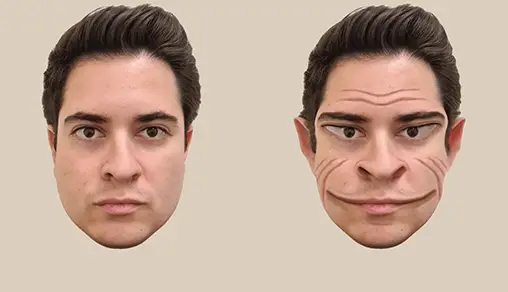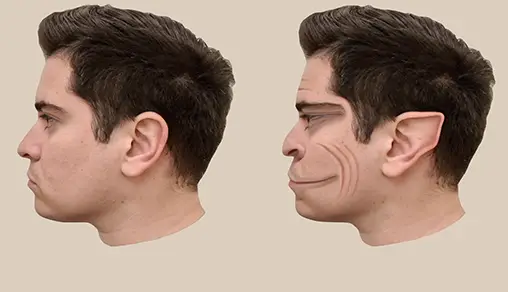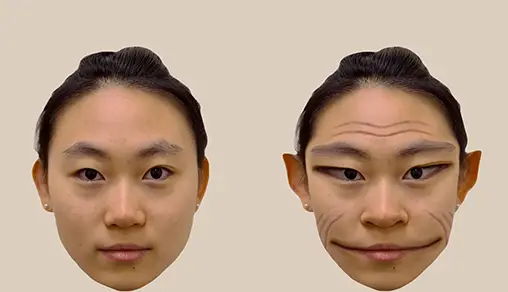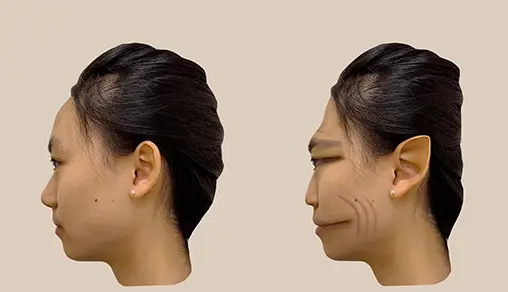
A man has suffered for years with a rare disorder that distorts how he sees people's faces and it is heartbreakingly haunting
As one of our key senses, the ability to see clearly is often taken for granted. But if you do consider having eye health issues, most simply think about going blind.
However there are other health conditions that don’t completely stop your vision, but massively distort how you see the world around you that go overlooked.
A man from Clarksville, Tennessee has been living with a serious and rare eye condition for four years now and it has baffled the scientific community.
Advert

Victor Sharrah has spoken out about his ordeal and it is so bizarre it sounds like something out of a horror film.
He previously had sharp vision but one day in November 2020, people’s faces around him became to look different.
He has described the faces as almost ‘demonic’, at least that is how he sees them.
A normal person’s ears, noses and mouths appear stretched back and there are deep grooves in their foreheads, cheeks and chins.


Speaking about his health issue he has said: “My first thought was I woke up in a demon world. You can’t imagine how scary it was."
Luckily, Sharrah actually knew someone who taught the visually impaired so they were able to give him some insight into what he was experiencing.
After a consultation, they suggested he may be suffering from prosopometamorphopsia, or PMO.
It is a rare neurological disorder of perception and can cause faces to appear distorted in a variety of ways, including their shape, size, texture or color.
For Sharrah, the distortions only appear when he sees people in person, not in photographs or computer screens.
This has led some scientists to believe the issues are connected to how the brain processes movement of faces.


Sharrah was formally diagnosed with the disease in 2023 and has been attempting to live with the massive change to how he views the world.
Unfortunately, there isn’t a lot known about this disease and it can be vastly different between people.
To complicate matters further, doctors are not always aware of the disease's existence so can misdiagnose individuals with mental health disorders, leading to them being prescribed medications for schizophrenia or psychosis.
Sharrah has found ways to cope with his condition however. He lives with a roommate and her two children which has been helpful as he gets used to having people around.
Green light also alleviates his symptoms, so Sharrah regularly wears green-tinted lenses when he’s in crowds.
“I came so close to having myself institutionalized,” Sharrah said.
“If I can help anybody from the trauma that I experienced with it and keep people from being institutionalized and put on drugs because of it, that’s my No. 1 goal.”